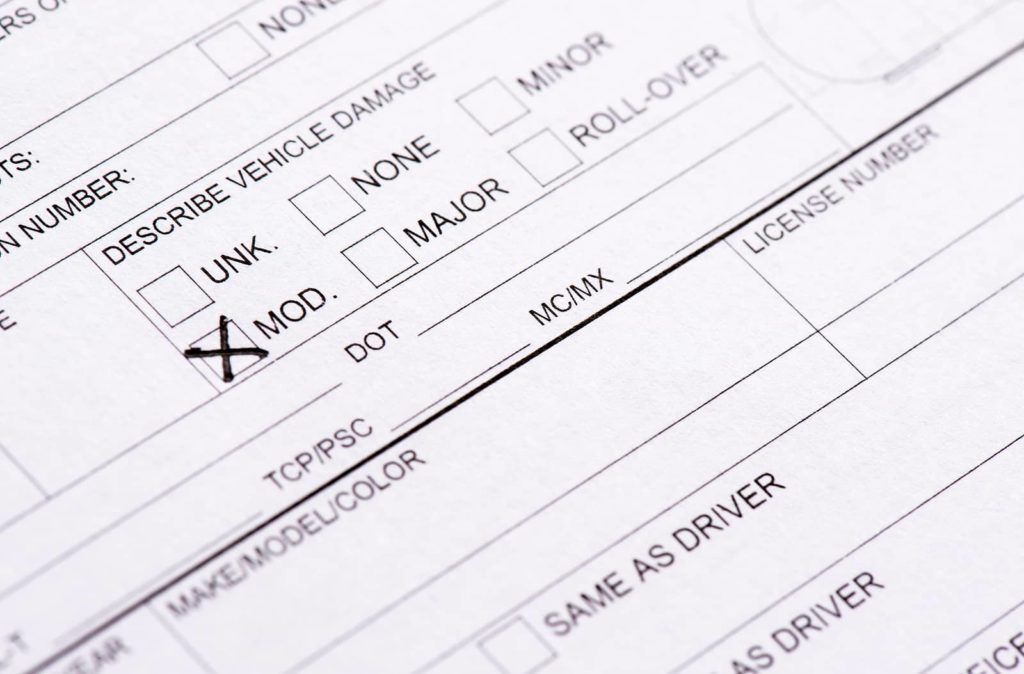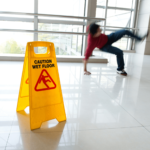
Often, those who have been involved in a car accident worry that the police report isn’t accurate. Immediately after a crash, giving an accurate statement about what happened can be difficult to do. Often, after thinking over what happened, you may wonder if it’s possible to amend the report.
What is in a Police Report and what is it used for?
Police reports might not be admissible in court, however, they are often used by insurance companies to determine fault or negligence. This means mistakes on the report can be problematic when it comes time to accurately evaluate damage claims. An insurance adjuster will request a copy of the police report when you make a claim. For this reason, the information must be as accurate as possible. Information contained in a police report may include:
- Details regarding vehicle damage.
- Contact information for those involved as well as any witnesses.
- Details of the crash itself, such as the time, date, and where it occurred.
- Statements provided by the drivers, passengers, and eye-witnesses.
- Details regarding injuries.
- Descriptions of any property damage.
- A diagram that shows the scene of the incident.
- The officer’s own narratives about the incident, including their personal conclusion about the reasons why the incident occurred. The officer will also include any citations they gave out.
- Photos taken at the accident scene.
Sometimes, police officers can make errors when writing a police report. This is mostly because they aren’t there to witness the accident, and have to come up with a narrative based on circumstantial evidence and conflicting statements. Police officers are also often under stress or might be on the scene for a limited amount of time, which can further increase the chances of an error occurring.
Since the insurance company won’t have much to go on when evaluating the claim, the police report is a primary piece of evidence and can be extremely persuasive. For this reason, any inaccurate information can make a huge difference to the outcome of the claim. Police reports also often contain some speculation based upon non-factual accounts, such as eye-witness statements, so it’s not uncommon for them to be slightly inaccurate. So, what happens if you read through a police report and see mistakes?
How to Amend a Police Report
The first step if you want to make changes to your police report is to read it through thoroughly and identify any changes that you feel need to be made. Smaller, factual errors, such as a wrongly recorded date, might be easily fixed. However, if you find other incorrect information contained within the report that isn’t factual, such as a mistaken eyewitness account, go over that with your attorney. Eye witness accounts can be extremely unreliable, and your attorney will know the best way to go about having that information amended in the report.
You can request that the police officer who wrote the initial report make corrections if you feel the report isn’t accurate or didn’t contain necessary details about the incident. If you feel you need to take action, doing it as soon as possible is critical. You can contact the police officer directly, but it’s usually recommended that you speak to an attorney who can then represent you in these matters. An attorney with experience in dealing with car accidents will have the knowledge to deal with amendments to a police report properly.
If you want to contact the police officer yourself regarding errors on the police report, there are some important steps you should take to improve your chances of the report being fixed.
- Amend any mistakes as quickly as possible. The longer you go without addressing errors, the less likely the mistakes will be fixed. If you can address issues before the police report is finalized, that is ideal.
- Provide documentation if you have it. If there is a factual error, such as an incorrectly written date or a wrongly recorded vehicle make or model, provide any documents that show the correct factual information.
- Provide medical records that show any statements you originally gave may have been negatively affected by medications, injuries, or pain relief. If you were interviewed at the hospital, or after experiencing a traumatic injury such as a head injury, there’s a good chance you weren’t in the right mindset to be recounting the incident accurately. Providing medical records that show this is the case may persuade the officer to let you tell your version of events again.
- Have a good attitude and never blame the officer for making mistakes on the report. If you’re polite, you’re much more likely to convince the officer that the error is genuine and should be corrected.
- Hire an attorney. For smaller, factual errors, dealing with the corrections yourself should be fairly easy. However, if the error is more complex or deals with an eye-witness statement or a non-factual mistake, an experienced attorney will know how to navigate the road to a correction. Complex errors on a police report can be difficult to argue, and will likely require the knowledge of a lawyer.
If you do need to make a change to a police report, having evidence or a thorough understanding of exactly what changes need to be made is critical. Evidence that shows how or why the accident occurred can be extremely helpful when making amendments to a police report. For example, surveillance video footage of the incident that was obtained after the original report was written, medical records, or eye-witnesses who step forward after the incident. These are all pieces of evidence that could very much be used to change a police report.
If the police officer does not agree to make changes to the police report, the next step is to write a statement that will then be attached to the original report. An experienced accident attorney can help you prepare this statement to ensure it covers all necessary points.
Contact an Experienced Los Angeles Car Accident Attorney
If you have been injured in an auto accident, it’s important to immediately contact a professional car accident attorney. The Los Angeles auto accident lawyers at the Law Offices of Samer Habbas & Associates can then help determine if you have a valid auto injury claim, and they can help correct any errors in your police report. With multiple offices located in Los Angeles, El Segundo, Irvine, San Diego, and Riverside, our personal injury lawyers represent auto accident victims across Southern California. For more information or to schedule a complimentary consultation with one of our attorneys, please call 949-727-9300.
Samer Habbas, Esq
State Bar: #243683
Samer Habbas is a California attorney with over 15 years of experience in personal injury law. Throughout his career, he has successfully recovered over $300 million for his clients, solidifying his reputation as a leading advocate in the field.
Samer swiftly gained recognition for his adept negotiation skills and unwavering dedication to his clients. His practice spans a wide range of personal injury cases, including car accidents, dog bites, funeral home abuse, premises liability, and wrongful death.
Samer is known for his compassionate approach and commitment to securing favorable outcomes for his clients. His expertise has earned him the trust and respect of both his clients and his peers within the legal community. He is also deeply invested in giving back to his community. He actively participates in pro bono work and volunteers his time to various charitable organizations. Samer is a champion for those who have been wronged, leveraging his extensive experience and expertise to make a meaningful difference in the lives of his clients and his community.
Recent Post
-
April 15, 2024
-
April 12, 2024
-
April 9, 2024
-
April 8, 2024
-
April 8, 2024












